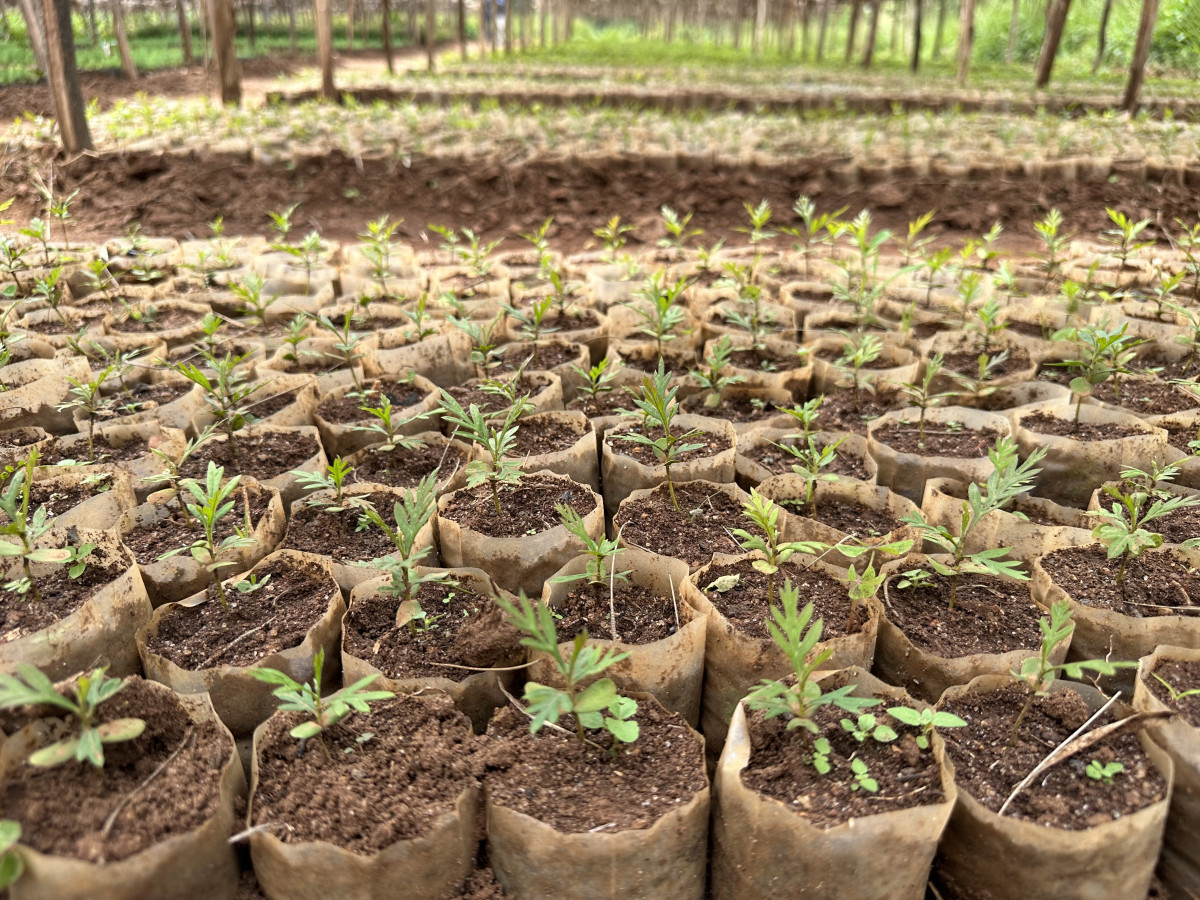Natural resource management in Ethiopia – The road to a sustainable future?
Published: Feb 6, 2024 Reading time: 3 minutes Share: Share an articleErosion, deforestation, disturbed landscapes, loss of productive soil, and famine are some of the problems facing Ethiopia, a country significantly dependent on agriculture. Human activities, such as farming practices, caused these issues, and we are helping Ethiopia to tackle these challenges with sustainable solutions.

Ethiopia has faced severe environmental issues, such as an increase in average temperatures or changes in rainfall patterns, which directly result from climate change. These effects threaten to undermine positive agricultural developments and efforts over the past two decades to prevent malnutrition and famine. With extensive deforestation and erosion, climate change poses serious environmental risks. More than 70% of the Ethiopian population depends on agricultural production. These climate-related problems degrade soil quality and impact people's livelihoods, causing malnutrition and other social issues like environmental migration.
Based on years of cooperation between the Czech Republic and Ethiopia, and supported by the Czech Development Agency, we run development projects focused on managing natural resources to strengthen environmental resilience in Ethiopia. Our objectives include developing modern agricultural methods, rural development, and sustainable management of natural resources. Not only do these projects positively impact Ethiopian nature and the environment, but they also benefit the people living locally.
Bringing water back!
Water and soil conservation are the biggest challenges we help tackle. Families often inherit fields, grazing lands, and woodlands damaged by excessive grazing, deforestation, unsustainable farming methods, and droughts. Furthermore, compounding issues also include the poor definition of land tenure and capacities for community landscape management. Therefore, we provided complex and holistic solutions to help local communities overcome these problems.
We can effectively restore eroded and dry landscapes, by returning water to the land. Since a healthy landscape can hold a significant amount of water and provide many natural water structures, we must actively rehabilitate this capacity and rebuild water sources where they have disappeared. Therefore, people in the southern Ethiopian regions, with our assistance, have been creating various basins, pools, dams, ditches, and other water-conserving structures to restore devasted land and promote biodiversity conservation.
Harer Dudga from People in Need describes how this system works:
This gives degraded land a chance to heal. Since most Ethiopians depend on agriculture, health soil is critical to a secure life.
10 million trees
Extensive deforestation accelerated significantly between the 1960s and 1980s, losing 60-70 % of the country's forest coverage. In recent years, the Ethiopian government has supported reforestation efforts. However, when it comes to planting trees, there are challenges connected to the production of tree seedlings, such as untrained workers, low seed quality, lack of infrastructure, and gaps in reforestation planning, often making reforestation ineffective.
Czech experts provide know-how for building more effective nurseries and developing reforestation and landscape management plans. We support nurseries that produce a variety of tree seedlings, including indigenous trees and seedlings of tree varieties that are resilient to drought and other extreme weather hazards related to climate change.
Besides reforestation, we also produce fruit and multipurpose trees for agroforestry farms, promoting their resilient varieties and methods, such as grafting. Mesfin Kassa from People in Need explains how grafting more resilient varieties works:
We have planted over 10 million trees and rehabilitated 10,000 hectares of degraded landscape.
A key element is the engagement of local communities in these processes so they can keep protecting their environment and move towards a more sustainable future.
The Czech Development Agency and our Real Gift Collection support us and our partner organisations in Ethiopia.



